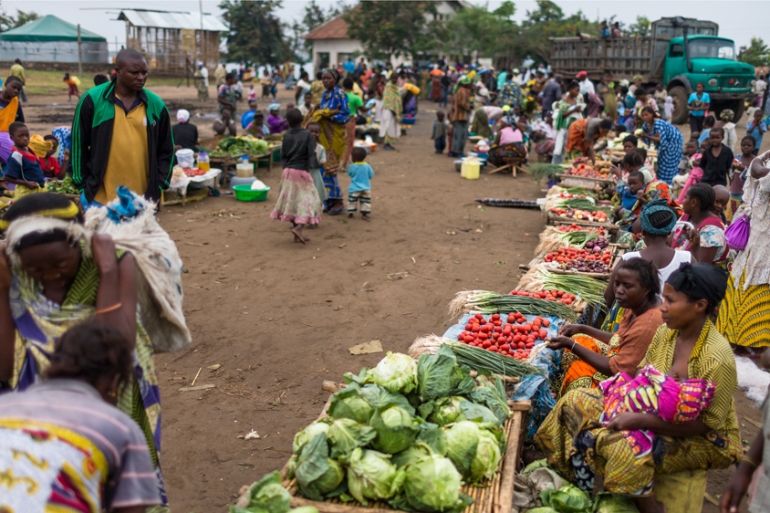UN: Millions of people face acute hunger in DRC
UN food agencies say number of people in need of urgent humanitarian assistance surged by 30 percent in a year in DRC.

About 7.7 million people are on the verge of starvation in the Democratic Republic of Congo (DRC), a 30 percent increase since last year, according to UN food agencies.
The number of people on pre-famine levels of food insecurity and requiring urgent humanitarian assistance rose from 5.9 million to 7.7 million between June 2016 and June 2017, the UN Food and Agriculture Organisation (FAO) and the World Food Programme (WFP) said on Monday.
Keep reading
list of 4 itemsPalestinian Prisoner’s Day: How many are still in Israeli detention?
‘Mama we’re dying’: Only able to hear her kids in Gaza in their final days
Europe pledges to boost aid to Sudan on unwelcome war anniversary
|
|
One in 10 people living in rural areas suffers from acute hunger, while chronic malnutrition affects 43 per cent of children under five years, the FAO report said.
Claude Jibidar, director of WFP’s operations in DRC, said on Monday that the situation was especially dire in the diamond-rich central Kasai region where a revolt has been raging for the past year, with both government and fighters accused of atrocities.
“Food security and nutrition … are deteriorating in many parts of DRC, but nowhere is the situation more alarming than in Kasai,” he said.
According to the FAO report, farmers have been unable to plant their crops in Kasai for the past two seasons because of fighting that has seen their villages and fields pillaged.
An estimated 1.4 million people in Kasai and in the eastern province of Tanganyika had been forced to flee their homes this year, it said.
A steady flow of refugees from neighbouring countries and a spread of fall armyworm infestations are also putting a strain on resources, according to the report.
“The situation is set to get worse if urgent support does not come in time,” said Alexis Bonte, the FAO’s representative in the DRC.
“Farmers, especially those displaced – majority women and children – desperately need urgent food aid but also means to sustain themselves, such as tools and seeds so that they can resume farming.”
Conflicts have displaced about 3.7 million people within the country, according to FAO.
